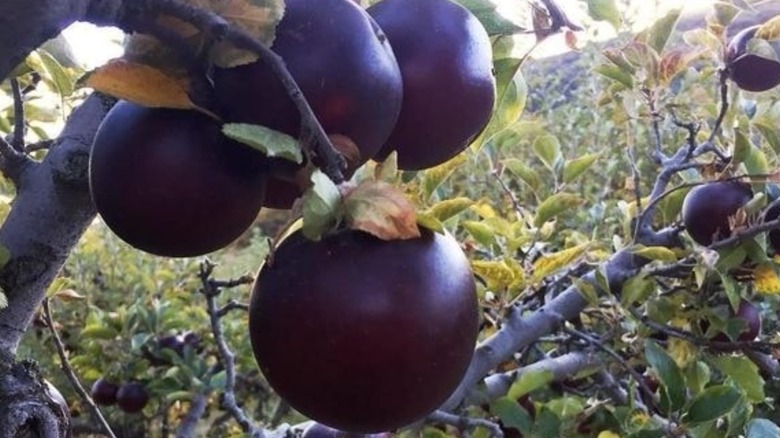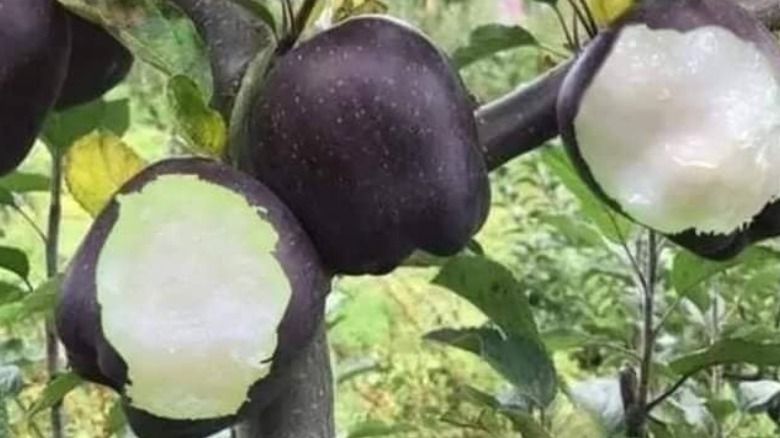The Real Reason Black Diamond Apples Are So Expensive
Move over, honeycrisps, there's another expensive apple on the market. According to "Today," Black Diamond apples can cost you between $7 and $20 apiece (and possibly a plane ticket). The fancy fruit is sold in high-end grocery stores in Asia, according to the site, and even comes packaged in gift boxes. So, what's the reason behind the high price tag?
According to Today, there are a few factors upping the cost on these dark beauties. One is that they have a very short production window and are only available two months of the year. Another price determinant is that about 70 percent of the annual Black Diamond crop doesn't even make it to the market. Also, as Mark Veeder, botanist, farmer, and founder of Farmacy Beauty told Today, Black Diamond apples require a time investment and can take between five and eight years to bear fruit. That's a long time to wait to bite into an apple! So, we gotta ask — are they worth it?
What makes Black Diamond apples special
For one thing, Black Diamond apples possess a hue that is certain to razzle and dazzle anyone lucky enough to receive one. According to Taste of Home, these apples come from the "Hua Niu" or Chinese Delicious apple family, and, though they aren't actually black, they are a delightfully deep purple. The apples are native to Nyingchi, a small, mountain city in Tibet. The unique conditions of the area — lots of ultraviolet light and big temperature drops at night — give the apples their seductive shade.
Of course, if you pay a lot more for an apple, in addition to a good picture for the Gram, you're probably hoping for a better taste. Black Diamond apples also come through on this expectation by delivering a sweet flavor, according to Taste of Home, due to their higher levels of organic sugars.
If you're dying to get your hands on one of these inky fruits, you might want to try a similar-shaded apple stateside. Arkansas Black apples, an apple that delivers lovely flavors like cherry, cinnamon, vanilla, and coriander, should be stored for a while before eating, and can be found on Arkansas store shelves in the northwest region of the state from late November to February (via Atlas Obscura). Or, you could always just take that trip to Tibet you've been putting off.

